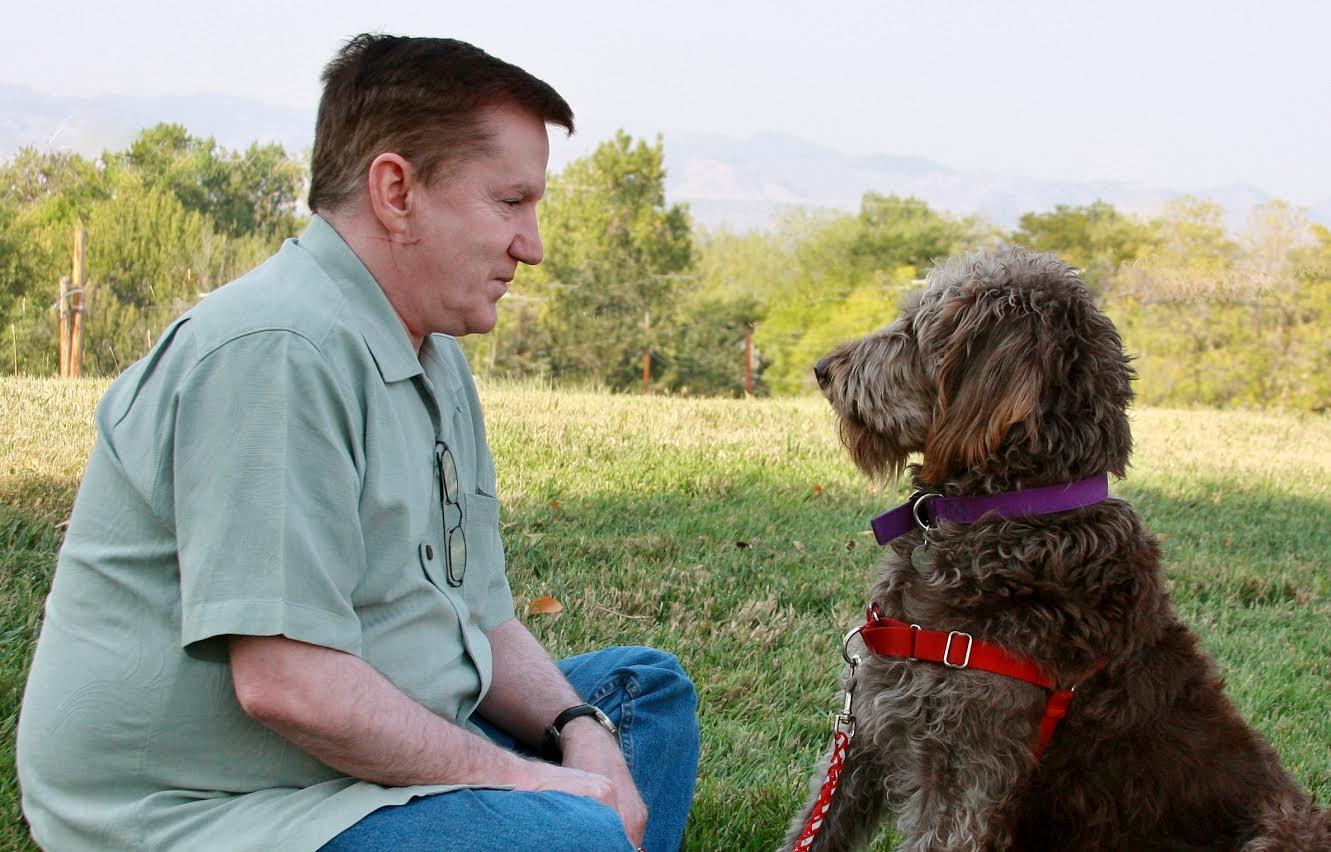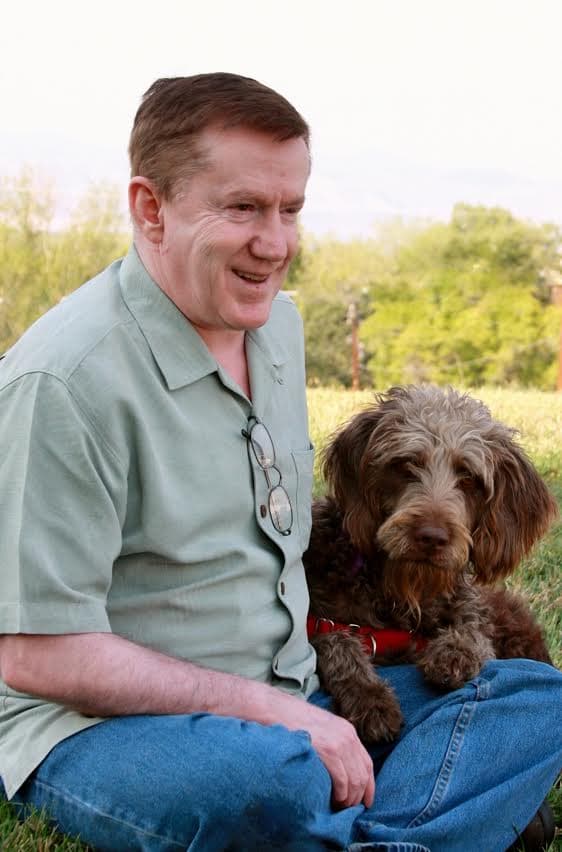
Every year, the American Humane Association recognizes good dogs like Gander. He is one of eight finalists in the Hero Dog Awards this year -- a service dog in the company of arson investigation, search-and-rescue, military, law enforcement, therapy and guide dogs.
He is a very good dog.
Gander currently lives in Illinois, but he is Colorado-raised and -trained. After he was saved from a high-kill shelter and given obedience training in a program at the Denver Women's Correctional Facility, Gander went to Freedom Service Dogs in Englewood. There, he was trained to become a service dog and was eventually paired with Lon Hodge, a veteran who has post-traumatic stress disorder and autoimmune mobility issues.
"They have not spent one day apart since then," the AHA website says, "and Lon credits Gander with literally saving his life."
Together, Hodge and Gander have traveled to 36 states (so far) to help people understand PTSD, veteran suicide, service dogs and disabilities. The pair have given hundreds of presentations to schools and community organizations and sponsored the first service dog education conference in the U.S. They perform "Planned Acts of Community Kindness" (PACKS) and have raised $1 million for veterans, veterans' groups, service dog charities and individuals in need.
"When Gander and Lon were placed together, it was never our intention for them to be anything more than just an excellent working team," said Bri Ore, one of Gander's trainers at Freedom Service Dogs, in an email. "Lon's desire to help his fellow veterans and community members, and Gander's approachable and intuitive attitude are what came together to create the Planned Acts of Community Kindness."
Of course, this kind of partnership doesn't happen overnight. It started in the Prison Trained K9 Companion Program, Ore explained, where they identify potential service dogs. Freedom Service Dogs evaluates the pooches, and if they're up to snuff, they bring them back to their facility for further evaluations. If they pass that round, they go back to the prison for three months of obedience training.
"When I met Gander at prison, he was a definite candidate for our program. He was sweet, calm, happy, and very interested in training and pleasing his person. He was just an all-around wonderful doodle," Ore said. "I would say his only challenge was the fact that he had a hard time in our kennel environment. He began coming home with me every night to help with his kennel stress."

Next up: the matching process. After an initial meeting, Hodge returned to Colorado for two weeks of placement class, during which he spent every day with Gander. To solidify the bond, the trainers ask all clients to curb their social activities for the first month with their dog and ask the people they live with to ignore the dog as much as possible.
"It can take many months after placement before they are truly an effective working team," Ore said. "They need to really get to know each other, how to read one another, and get into a solid routine."
Erin Conley, marketing and PR director for Freedom Service Dogs, said only about one in three dogs they work with becomes a service dog. (If they don't, they might become a professional therapy dog. Otherwise, they are adopted just as pets.)
So what makes Gander such a good dog for Hodge?
Service dogs are at first trained to take verbal commands when their humans needs assistance, but over time, they'll learn to react to non-verbal cues. That's especially important for someone with PTSD.
"[Gander is] a bit of a clown, which not everyone gets to see about him," Ore said. "He is also a very attentive, intuitive dog. We find that these types of dogs work really well with our clients with post traumatic stress disorder. The dog is naturally inclined to be in tune with the client's mood and stress levels, which makes them effective at knowing when to intervene to assist their client."
And, "As anyone that spends time around him can attest to, he is a very easy dog to love."
You can cast your vote for the 2016 American Hero Dog grand prize winner once a day through 1 p.m. (MT) Aug. 24.
To learn how to apply for a service dog or volunteer, visit the Freedom Service Dogs website.











